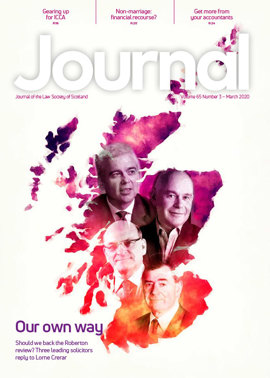Not so good to go

According to “reliable sources”, the Duke and Duchess of Sussex are surprised and disappointed that having renounced royalty, criticised many aspects of royal life, declined to do any further work for the Royal Family, and left the UK, probably for good, the Queen, unaccountably, will no longer permit them to call themselves “Royal”. This decision has consequences for the couple’s branding. Their Instagram handle @SussexRoyal is for the axe, and so is www.sussexroyal.com, the intended name for their website.
One assumes that even now, the red spectacles of elite creatives are thick with steam as they strive for alternative ways to spin the magic: @makeabuckinghampalace perhaps. But there are also consequences for the Royal Family’s brand. Insiders are fond of calling the family “the firm”, and this issue is one that confronts almost every firm at some time. How do you prevent top talent leaving and minimise the consequences?
Our first inclination as lawyers is to look at contractual remedies. Contracts may contain draconian clauses designed to limit people’s ability to leave at a time of their choosing, and take clients with them. But experience shows that in this arena, the law is a blunt instrument. Defection may be delayed, but it is well nigh impossible to prevent long term. Ultimately, offices are not prisons, and clients will go where they choose. Firms can best insulate themselves, first, by making the business a great place to work; secondly, discouraging a culture which gives star players inordinate power; and thirdly, ensuring that key clients are loyal to the whole firm, not just one or two individuals.
What makes a business a great place to work? Every reputable study concludes that money is not the main factor, especially for millennials. People choose to stay with an employer when the culture of the business aligns with their personal goals and professional aspirations. They are motivated by stimulating work, likeable managers who are on their side, and new experiences which give them the chance to extend their skills. They must feel that their career is on a path to somewhere meaningful. Increasingly, people need to believe that their organisation has a purpose and is a force for good, not just a means to putting food on the table. Perhaps above all, they must feel that they have a voice, and an opportunity to influence. This is not to say that a business has to take on board every suggestion, but effective leaders do not just pay lip service to listening to their staff. They keep their ear to the ground, ensure good ideas are implemented, and that their authors receive reward and recognition.
Deliver the whole firm
If these fundamentals are in place, people will put up with long hours and high pressure. But top talent has choices. Fail to provide the right environment and sooner or later it will be off. There is evidence all around that law firms are failing dismally to provide a fulfilling environment. The profession is stuffed with clever, aspirational people, especially the young, who find themselves exhausted, stressed, and disenchanted with being forced to work on a hamster wheel, grinding out days divided into six-minute units. In these circumstances, it is not surprising that staff mobility has never been higher.
It is also a fact that no matter how great a business is to work in, recruiters can be persuasive, money talks, and for some the grass will always be greener. What can leaders do to protect the firm from the consequences of stars defecting? The best answer is to create a strong brand identity for the business, and assiduously promote it to clients: the firm’s strengths; its values; its sector knowledge and connections; its depth of resources; and ensuring that clients have as many touch points with as many people as possible. One of a leader’s most important tasks is forging personal relationships with key clients, separate from the day-to-day relationships with those responsible for their work. None of the time spent this way will be chargeable. All of it is priceless.
Over many years, I have watched people come and go. In virtually every case where firms have taken the approach I’ve described, defectors’ assumptions about who will follow them have proved overoptimistic. Loyalty is not entirely dead. Clients dislike change. If they have good reasons to believe that the firm which has looked after them well will continue to do that, they will at the very least seriously consider giving them a chance. As Ross Harper remarked to me many years ago, cemeteries are full of the indispensable.
Nothing you do will be foolproof. Taking proper care of staff and clients is a tough, relentless task. But do it well, and it’s your business, not its best people, that will be on the move.






